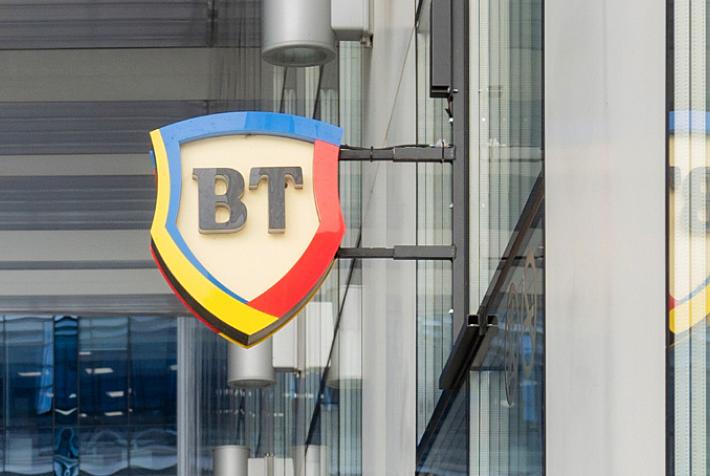Romanians plead guilty for running cyber fraud scheme in the U.S.

Fifteen defendants, most of them Romanians, have pleaded guilty to-date for their roles in a transnational and multi-million-dollar scheme to defraud American victims through online auction fraud. Among them is Vlad-Calin Nistor, the founder of a Bitcoin exchange based in Romania – Coinflux, which has been shut down.
According to court documents, the defendants participated in a criminal conspiracy that engaged in a large-scale scheme of online auction fraud. Romania-based members of the network posted false advertisements to popular online auction and sales websites (Craigslist and eBay) for high-cost goods (typically vehicles) that did not exist. Members of the conspiracy would convince American victims to send money for the advertised goods by crafting persuasive narratives, such as by impersonating a military member who needed to sell the advertised item before deployment.
According to court documents, members of the conspiracy created fictitious online accounts to post these advertisements and communicate with victims, often using the stolen identities of Americans. They also delivered invoices to the victims bearing trademarks of reputable companies to make the transaction appear legitimate. Members of the conspiracy also set up call centers, impersonating customer support, answering questions, and alleviating concerns over the advertisements.
Once victims were convinced to send payment, the conspiracy participants engaged in a complicated money laundering scheme, which included converting these funds to cryptocurrency, and transferring them to foreign-based money launderers.
“Today’s modern cybercriminals rely on increasingly sophisticated techniques to defraud victims, often masquerading as legitimate businesses,” said Assistant Attorney General Brian A. Benczkowski of the Justice Department’s Criminal Division. “These guilty pleas demonstrate that the United States will hold accountable foreign and domestic criminal enterprises and their enablers, including crooked bitcoin exchanges that swindle the American public.”
“Through the use of digital currencies and trans-border organizational strategies, this criminal syndicate believed they were beyond the reach of law enforcement,” added Assistant Director Michael D’Ambrosio, U.S. Secret Service, Office of Investigations. “However, as this successful investigation clearly illustrates, with sustained international cooperation, we can effectively hold cybercriminals accountable for their actions, no matter where they reside.”
Four of the defendants who pleaded guilty for their involvement in this cybercrime scheme are Romanians in their early 30s.
Bogdan-Stefan Popescu, 30, operated a car wash in Bucharest, Romania, where he managed coconspirators in the RICO enterprise. “From at least December of 2013, Popescu oversaw an operation whereby he knowingly negotiated fraudulently obtained Bitcoin. He did so in many ways. For example, he would sometimes receive cryptocurrency from coconspirators who obtained the funds through online fraud scams, transfer the cryptocurrency to other conspirators such as codefendant Vlad-Călin Nistor. He would then direct that Nistor exchange the cryptocurrency for fiat currency and deposit the fiat currency into bank accounts held in the names of various employees and family members,” reads a press release of the U.S. Department of Justice.
In addition to providing money-laundering services, Popescu also coordinated the dissemination of tools used to defraud American-based victims, such as the language and photographs for fake advertisements as well as usernames and passwords for I.P. address anonymizing services. He also assisted members of the RICO conspiracy by connecting them with other members who could provide call center services—that is, who would impersonate eBay customer service representatives over the phone.
Liviu-Sorin Nedelcu, 34, worked in conjunction with others to post advertisements for goods online. “To maintain the appearance of legitimacy, Nedelcu created fictitious entities through which he purported to sell vehicles. Once Nedelcu and his coconspirators convinced victims to purchase falsely advertised goods, they sent the victims invoices for payment that appeared to be from legitimate sellers, such as eBay Motors. Upon receiving payment, Nedelcu and his coconspirators engaged in a sophisticated money-laundering scheme to convert the victim payment into Bitcoin,” according to the same source.
Vlad-Călin Nistor, 33, was the founder and owner of the Romania-based Bitcoin exchange Coinflux Services SRL. He exchanged cryptocurrency into local fiat currency on behalf of the Romania-based members of the conspiracy, knowing that the Bitcoin represented the proceeds of illegal activity. According to plea documents, for example, Nistor exchanged over USD 1.8 million worth of Bitcoin for codefendant Bogdan Popescu.
Another defendant who pleaded guilty in this case, Adrian Mitan, also pleaded guilty in a related money laundering conspiracy arising from online schemes, including a credit card phishing and brute-force attack scheme, designed to steal money from Americans. According to court documents, Mitan phished for payment card information of U.S. customers, hacked into the electronic systems of American businesses, and then conducted a brute-force attack on their point-of-sale systems to steal the remaining payment card information. He then directed American money launderers to create clone payment cards with the stolen data, which were used to extract money from the customers’ accounts. These fraudulent proceeds were then returned to Mitan in the form of Bitcoin.
The 15 defendants who have pleaded guilty in this case have yet to be sentenced. Two other defendants in the case are scheduled for trial starting on September 14, 2020. Three others are fugitives.
The investigation was conducted by the U.S. Secret Service, Kentucky State Police, Lexington Police Department, IRS Criminal Investigation, and U.S. Postal Inspection Service, and supported by the Justice Department’s Organized Crime Drug Enforcement Task Forces (OCDETF) and the International Organized Crime Intelligence and Operations Center (IOC-2). Assistance was provided by the Romanian National Police (Service for Combating Cybercrime) and the Romanian Directorate for Investigating Organized Crime and Terrorism (Agency for Prosecuting Organized Crime).
editor@romania-insider.com
(Photo source: ID 117079563 © Roman Volskiy | Dreamstime.com)












